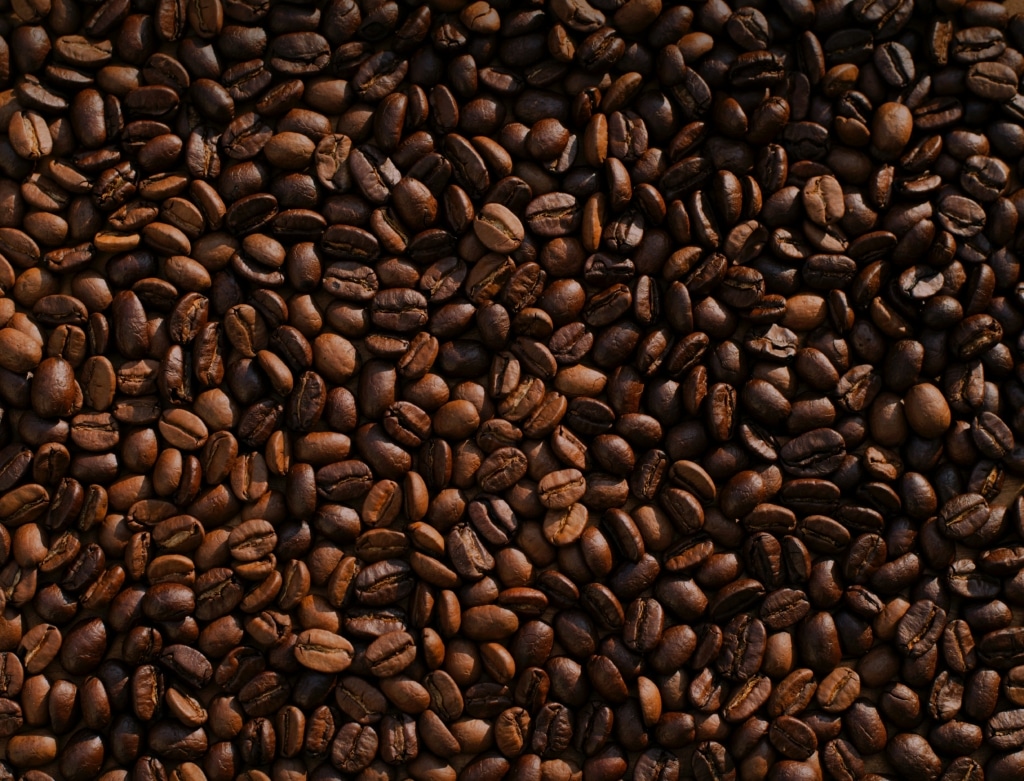In today’s fast-paced world, caffeine has become a cornerstone of our daily routines. Whether it’s a morning cup of coffee to kickstart the day or a soda to beat the afternoon slump, this powerful stimulant has permeated our lives in many ways.
Yet, despite its ubiquity, there are some common misconceptions about caffeine’s effects on our bodies and brains.
In this article, we aim to dive into the fascinating world of caffeine, explaining what it is, how it works in our bodies, and most importantly, debunking or confirming some of the most common statements about this widely-consumed substance. Brace yourself for an enlightening journey through the truths and tall tales of caffeine.
What is Caffeine?
At some point in your life, whether it was during a late-night study session or an early morning wake-up call, you’ve probably reached for a cup of coffee, tea, or an energy drink. But what exactly is the magical ingredient that gives these beverages their invigorating powers? Caffeine, of course!
Caffeine is a natural stimulant most commonly found in tea, coffee, and cacao plants. In straightforward terms, a stimulant is a substance that wakes up your nervous system and makes you more alert. If your body were a car, caffeine would be like a turbo boost – giving you that extra kick when you need to stay awake, focused, or energetic.
In scientific terms, caffeine is a chemical compound, specifically a stimulant drug. This means it speeds up the messages traveling between the brain and the body. It’s the most widely consumed psychoactive substance in the world. This means that it changes brain function and results in alterations in perception, mood, consciousness, or behavior.
Its scientific name is 1,3,7-trimethylxanthine. It may sound complex, but it’s just a fancy way of describing its molecular structure. The caffeine molecule is made up of carbon, hydrogen, nitrogen, and oxygen atoms arranged in a specific way.
When you consume caffeine, it gets absorbed into your bloodstream and travels to your brain. Here’s where the real action happens. Our brains have these spots called receptors that a substance like adenosine – a chemical messenger – usually binds to. When adenosine binds to these receptors, it makes us feel sleepy.
Caffeine is a bit sneaky. It’s similar enough in structure to adenosine that it can bind to these receptors too. But, unlike adenosine, caffeine doesn’t make us feel sleepy. So, when caffeine binds to the receptors, it blocks the adenosine and prevents most of us from feeling tired. That’s why after a cup of coffee, you might feel more awake and alert.
In its pure form, caffeine is a bitter, white crystalline substance. However, in our daily lives, we generally consume it in more delicious forms like a warm latte, a refreshing iced tea, or even in a bar of dark chocolate.
What Happens When Caffeine Enters the Body?
Once you sip your morning coffee, tea, or maybe even a caffeinated soda, the caffeine begins its journey. It doesn’t take long to start working – about 45 minutes to an hour after consumption, caffeine reaches peak levels in your bloodstream.
From here, caffeine travels to your liver, where it’s broken down into three different substances: paraxanthine, theobromine, and theophylline. Each of these has its own effects. Paraxanthine breaks down fats and releases a type of fuel called glycerol into the bloodstream for your muscles to use. Theobromine increases the amount of oxygen and nutrients that can be used by your brain and muscles. Theophylline relaxes smooth muscles, which are the muscles that control your internal organs like the stomach and bladder.
The primary location where caffeine works its magic, though, is the brain. Your brain cells naturally produce the substance we mentioned called adenosine, which binds to receptors in your brain. This binding makes you feel sleepy.
Because of its similar structure to adenosine, caffeine can also bind to these adenosine receptors. But, instead of making you feel sleepy like adenosine, caffeine blocks the receptor, preventing you from feeling tired. That’s why we said caffeine was sneaky!
This is why after drinking something caffeinated, you feel more awake, alert, and focused – because your brain’s natural sleep signals are being blocked.
10 Statements about Caffeine: Myths or Facts?
Statement 1: “Caffeine Isn’t Addictive for Everyone”
Evaluation: Mixed Evidence
Caffeine is a substance that may have the potential to lead to dependency, but whether it’s classified as ‘addictive’ depends on how we define addiction. The American Psychiatric Association’s Diagnostic and Statistical Manual of Mental Disorders (DSM-5) does recognize “caffeine withdrawal” as a condition, but it doesn’t fully recognize “caffeine use disorder” as a diagnosable condition.
Not everyone who consumes caffeine will develop dependency or withdrawal symptoms, which can include headache, fatigue, and difficulty concentrating when caffeine intake is abruptly stopped. Some individuals can consume caffeine regularly without experiencing these issues. This can be due to a variety of factors such as genetics, the amount of caffeine consumed, and individual metabolic differences.
Yet, some studies suggest that regular, sustained caffeine use can lead to a kind of dependency that shares some features with traditional definitions of addiction, including tolerance (needing more of the substance to achieve the same effects), craving, and negative effects on personal or professional life due to the substance use.
In short, the evidence is mixed and it’s safe to say that while caffeine may lead to a form of dependency for some people, it isn’t ‘addictive’ in the way other substances like nicotine or opioids may be.
Statement 2: “Caffeine Causes Dehydration ”
Evaluation: Myth
The belief that caffeine, particularly when consumed in the form of coffee or tea, causes dehydration is a common one. It stems from the fact that caffeine can have a diuretic effect, which means it can increase the output of urine.
However, recent research suggests that moderate consumption of caffeinated drinks in the context of a normal lifestyle doesn’t result in fluid loss exceeding the volume of fluid consumed, or what is known as ‘net dehydration’. When consumed in moderate amounts, drinks like coffee and tea provide fluid that contributes to your daily hydration needs just like other non-caffeinated beverages do.
It’s worth mentioning that heavy caffeine use can increase calcium loss through urine, but the impact on your overall bone health isn’t fully understood and likely depends on many factors including overall diet and genetic predisposition.
Statement 3: “Caffeine Can Cause Insomnia and Sleep Disorders”
Evaluation: Fact
Caffeine’s stimulating effects can indeed lead to sleep problems, especially when consumed in large amounts or close to bedtime. It can increase the time it takes to fall asleep, reduce total sleep time, alter the normal stages of sleep, and decrease the quality of sleep.
Caffeine blocks adenosine receptors in the brain. Adenosine is a chemical that promotes sleep and tends to build up in our bodies the longer we stay awake. By blocking adenosine, caffeine disrupts sleepiness signals and can therefore interfere with our sleep.
Keep in mind, the half-life of caffeine in the human body is typically in the range of three to five hours. This means if you have a cup of coffee containing 200 mg of caffeine at 3 PM, about 100 mg might still be in your system by 6-8 PM, which could potentially impact sleep.
That said, individual sensitivity to caffeine varies – some people might find that even small amounts of caffeine can disrupt their sleep, while others may consume it without experiencing sleep disturbances.
While not everyone who consumes caffeine will experience sleep problems, caffeine can disrupt sleep and potentially lead to insomnia or other sleep disorders, especially when consumed in large amounts or close to bedtime. It’s always a good idea to monitor your own response to caffeine and adjust your intake accordingly.
Statement 4: “Drinking Caffeine When Drunk Makes You Sober Up”
Evaluation: Myth
Caffeine may help with drowsiness, but it doesn’t reverse the effects of alcohol on your coordination, decision-making, or overall impairment. Alcohol affects your brain’s cerebral cortex, slowing down the processing of information from your eyes, ears, mouth, and other senses. It also affects the part of your brain that controls inhibition, judgment, and self-control.
Caffeine, a stimulant, might make you feel more alert or less tired, but it doesn’t counteract the cognitive impairments caused by alcohol. That’s why combining alcohol and caffeine can be risky – it might make a person feel “less drunk,” but it doesn’t reduce actual alcohol impairment.
The only thing that can actually sober you up is time – as your liver metabolizes the alcohol.
While caffeine can make you feel more awake, it doesn’t counteract the cognitive and motor impairments caused by alcohol. The perception of being “less drunk” might even lead to risky behaviors, like deciding to drive.
Statement 5: “Caffeine Is Not a Drug”
Evaluation: Myth
Caffeine is indeed a drug. Specifically, it’s classified as a stimulant, meaning it increases activity in your central nervous system. Like other drugs, it has physiological effects on the body, including increasing heart rate and reducing feelings of fatigue.
Caffeine works by blocking the action of a neurotransmitter called adenosine, which is responsible for promoting sleep and relaxation. This is why after consuming caffeine, you might feel more alert or awake.
It’s important to note that while caffeine is a legal and commonly consumed substance, it can lead to physical dependence and has side effects, especially when consumed in large amounts. Side effects can include restlessness, insomnia, heart palpitations, and, in severe cases, even delirium.
Despite its wide acceptance and legal status, caffeine is indeed a drug. Its effects on the central nervous system classify it as a stimulant, and it should be used responsibly, just like any other drug.
Statement 6: “Caffeine Doesn’t Impact Blood Pressure”
Evaluation: Myth
Caffeine can cause a short-term spike in blood pressure, even in people without high blood pressure. It’s thought that caffeine may block a hormone that helps keep your arteries widened, or it could cause your adrenal glands to release more adrenaline, which would cause blood pressure to increase.
However, researchers aren’t sure if caffeine use increases blood pressure in the long term or if there’s a link between caffeine and risk of cardiovascular disease. Some studies have shown such links, while others have not.
Factors like genetics and tolerance can also influence how caffeine affects an individual’s blood pressure. Someone who regularly consumes caffeine might have less of a blood pressure response than someone who doesn’t consume caffeine as often.
While caffeine can cause a short-term spike in blood pressure, the long-term effects are less clear. Individuals respond to caffeine differently, and your personal response may also depend on how much caffeine you’re accustomed to drinking.
Statement 7: “Caffeine Weakens Your Body’s Immune System”
Evaluation: Mixed Evidence
The impact of caffeine on the immune system is complex and not entirely understood. Some studies suggest that caffeine might have immunosuppressive properties, meaning it could potentially reduce the activity of the immune system. However, other research indicates that caffeine might have an anti-inflammatory effect, which could benefit the immune response. It seems that caffeine’s impact on the immune system could depend on the context, including the amount of caffeine consumed and the overall health and lifestyle of the individual.
For instance, studies have found that caffeine could reduce certain aspects of immune function in animal models, but this doesn’t automatically mean it has the same effect in humans. On the other hand, research published in Nature Medicine found that caffeine and its metabolites can inhibit inflammation in laboratory experiments.
The relationship between caffeine and the immune system is complex and still not fully understood. More research is needed to determine how caffeine might affect immune health in different contexts.
Statement 8: “Caffeine Affects Short-Term Memory”
Evaluation: Mixed Evidence
Caffeine’s impact on memory is a complex subject and can depend on several factors, such as how much caffeine is consumed, the individual’s tolerance and sensitivity to caffeine, and the type of memory being tested.
Some research suggests that caffeine might improve certain types of memory, such as consolidation of long-term memories. On the other hand, the evidence is less clear when it comes to short-term or working memory. Some studies have found a positive effect, while others have found no effect or even a potential negative effect, especially at higher doses.
For instance, a study published in the journal “Behavioural Brain Research” found that caffeine had a positive effect on working memory tasks, but this effect was more pronounced in habitual caffeine users and depended on the difficulty of the tasks.
Statement 9: “Caffeine Doesn’t Have Benefits on Brain Function”
Evaluation: Myth
Caffeine is indeed known for its potential benefits on certain aspects of brain function, primarily alertness, attention, and concentration. As a central nervous system stimulant, caffeine works by blocking the action of a neurotransmitter called adenosine, which promotes sleep and relaxation. By blocking adenosine, caffeine helps reduce the sensation of fatigue and can increase feelings of alertness.
Numerous studies have found that moderate caffeine intake can improve performance on tasks that require sustained attention, increase alertness during periods of sleep deprivation, and potentially enhance cognitive performance in areas such as reaction time and information processing.
For instance, a study published in “Psychopharmacology” found that moderate doses of caffeine could improve cognitive performance, particularly on attention tasks, and mood in the general population.
It is a myth that caffeine doesn’t have benefits to brain functioning. In fact, many point to caffeine’s nootropic effects. The stimulant has been shown to enhance alertness, attention, and certain aspects of cognitive performance. However, these effects can vary based on factors such as individual tolerance, the amount of caffeine consumed, and the specific cognitive tasks being performed.
Statement 10: “Caffeine Negatively Affects Workouts”
Evaluation: Myth
Contrary to this statement, caffeine is widely recognized for its performance-enhancing effects in various aspects of physical exercise. Many studies suggest that caffeine can improve exercise performance in endurance sports and high-intensity workouts, possibly by reducing perceived effort and pain or by increasing power output and fat burning.
Caffeine’s ergogenic (performance-enhancing) effects are likely due to several mechanisms, including its role as a central nervous system stimulant and its ability to increase the release of endorphins, which can reduce pain perception.
However, individual responses to caffeine can vary. While some people might experience performance benefits, others might experience side effects like jitters, increased heart rate, or gastrointestinal discomfort, especially at higher doses.
It is generally a myth that caffeine negatively affects workouts. Instead, it’s often used as an ergogenic aid to enhance performance in various types of exercise. However, individual responses can vary, and it’s important to use caffeine responsibly and be aware of potential side effects.
Main Takeaways
In the realm of caffeine, like with many things in life, the devil truly is in the details. The effects of this powerful stimulant are far from black and white. They are influenced by a multitude of factors, from genetics to daily habits, tolerance, and overall health. While caffeine can offer some potential benefits, such as enhanced alertness, enhanced cognitive performance, and improved workout performance, it’s crucial to remember that these effects can vary greatly from person to person, and they come with a caveat of potential side effects, especially when consumed in high doses.
As we’ve seen, many common beliefs about caffeine are grounded in evidence, some are pure myth, and still others fall into a gray area. As consumers, it’s our responsibility to stay informed and mindful about what we put into our bodies.
Ultimately, moderation and personal awareness are key when it comes to reaping the benefits of caffeine while minimizing potential downsides. So, go ahead and enjoy that cup of coffee or tea, but do it responsibly.

References
https://link.springer.com/article/10.1007/s00018-007-7051-9
https://pubmed.ncbi.nlm.nih.gov/1356551/
https://dsm.psychiatryonline.org/doi/book/10.1176/appi.books.9780890425596
https://journals.plos.org/plosone/article?id=10.1371/journal.pone.0084154
https://www.sciencedirect.com/science/article/abs/pii/S0278691502000947?via%3Dihub
https://jcsm.aasm.org/doi/10.5664/jcsm.3170
https://linkinghub.elsevier.com/retrieve/pii/S0376871613002354
https://www.biologyonline.com/articles/actions-caffeine-brain-special
https://www.tandfonline.com/doi/full/10.1186/1550-2783-7-5
https://www.sciencedirect.com/science/article/abs/pii/S0163725806000222
https://www.biologyonline.com/articles/actions-caffeine-brain-special
https://www.sciencedirect.com/science/article/abs/pii/S0376871613002354?via%3Dihub
https://www.sciencedirect.com/science/article/pii/S0002916523024814?via%3Dihub
https://www.nature.com/articles/nm.4267




